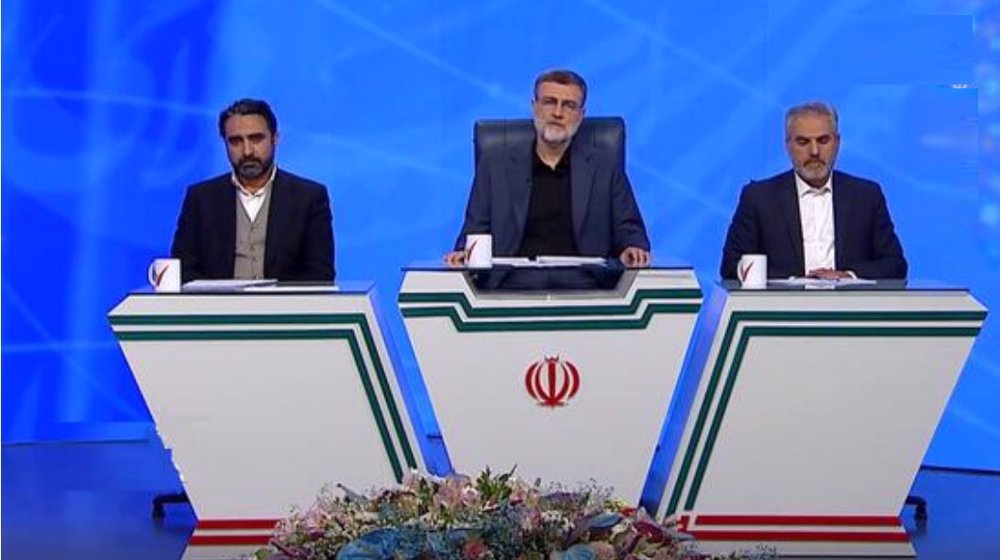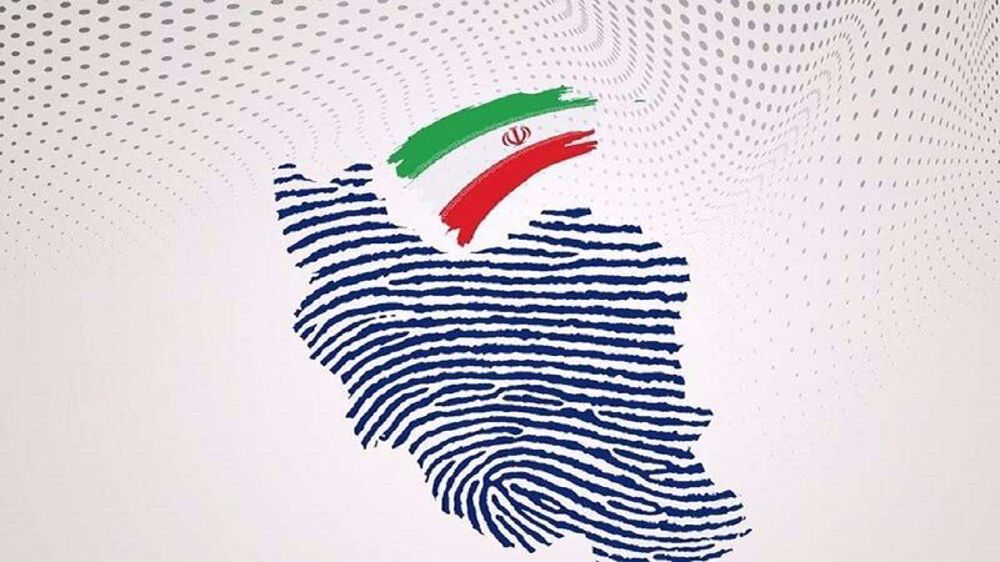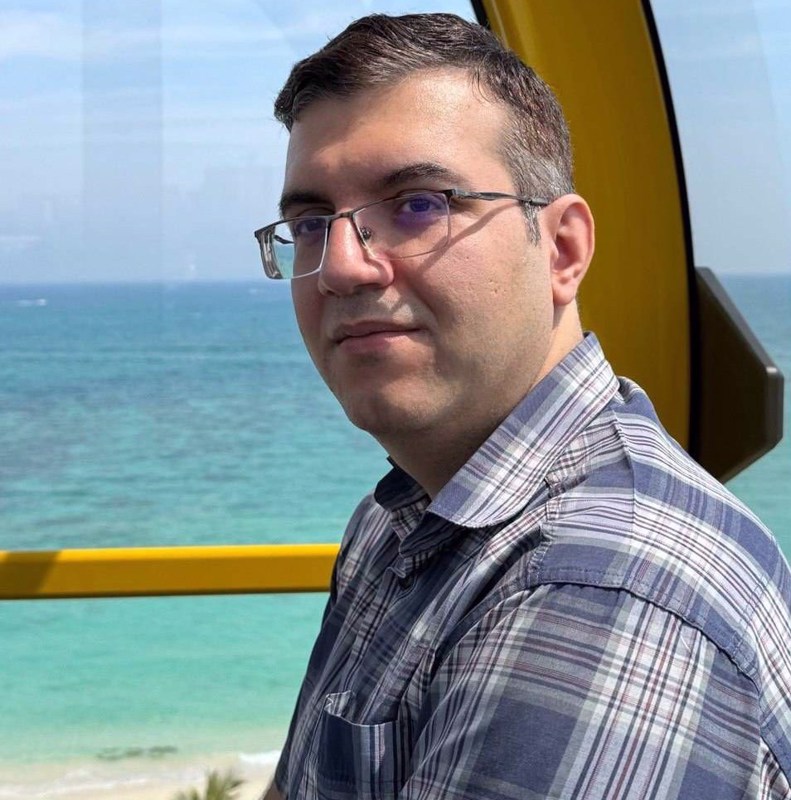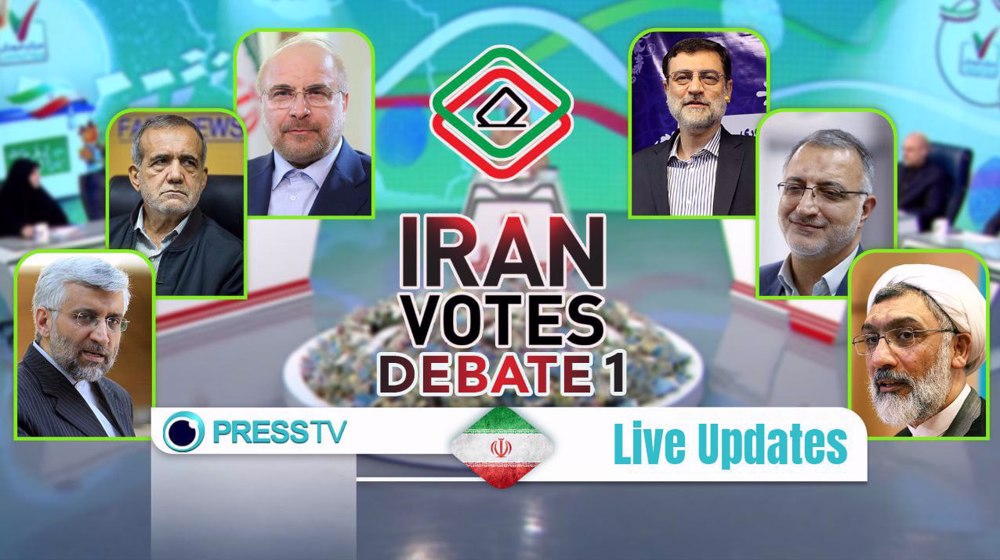Ghazizadeh Hashemi says will pursue diplomacy of power
Presidential candidate Amir Hossein Ghazizadeh Hashemi has pledged to champion a robust diplomacy of power and to continue late President Ebrahim Raeisi's strategic international relations policy that yielded numerous accomplishments if elected to office in the June 28 presidential vote.
Addressing the “political roundtable” program on Iran’s state TV, Ghazizadeh Hashemi, who served as a senior official in the Raeisi administration, said foreign policy should bring the nation freedom and political independence, coupled with the development of relations with other countries in line with national interests.
Addressing views that Iran must move towards detente with the US, he said Tehran cannot effectively resolve issues with Washington unless there is a fundamental shift in stance towards Iran at the White House.
He said Iran must look to work with neighboring states and those who are free from US political influence.
“In the previous terms, even neighboring countries turned their backs on us. In the Raeisi government, the begging diplomacy was turned into dignified diplomacy and we had achievements in every field,” he said.
During a period fraught with diplomatic challenges, including the rise of the Taliban in Afghanistan and the conflict between Azerbaijan and Armenia, the Raeisi administration safeguarded Iran's interests and averted a crisis akin to Ukraine's situation.
“Our oil sales, which previously were between 100 to 600 thousand barrels, surged to one and a half million barrels,” he said, highlighting Iran's integration into global entities like the Shanghai Cooperation Organization (SCO) and BRICS as significant strides.
The would-be president said he plans to encourage people to participate in efforts to fortify Iran's stature, and that he would focus on reinforcing ties with neighboring countries.
Ghazizadeh Hashemi underscored the need for the strategic use of Iran's geographical position as a pivotal transit hub in the region.
“We must first create solid relations with neighboring countries, those who have historically been in contact with us, and have a common culture and economy. We must move towards creating common value chains,” he said.
Ghazizadeh Hashemi also stressed the importance of fostering shared economic interests with neighboring nations to ensure border security.
"Our diverse ethnic communities, including the Baloch, Azari, Kurd, and Turkmen, exhibit strong internal and external linkages through people's institutions, enhancing our collective capacity."
Yemeni FM: Israel’s sponsors accountable for ongoing aggression on Sana’a
Eight Palestinians killed as Israel attacks Gaza school, hospitals
VIDEO | Rome, Milan host new protests in solidarity with Palestinians
Dec. 21: ‘Axis of Resistance’ operations against Israeli occupation
Spain jurists demand ties with Israel ties be cut
VIDEO | Press TV's news headlines
VIDEO | Iran honors top Science Olympiad medalists
VIDEO | Austrians arrested at Gaza protest in Vienna













 This makes it easy to access the Press TV website
This makes it easy to access the Press TV website